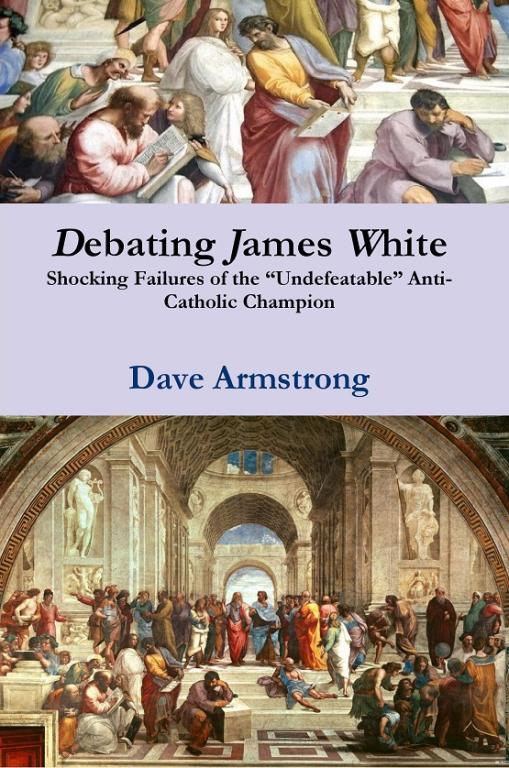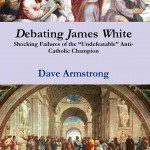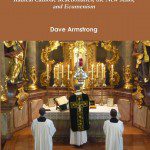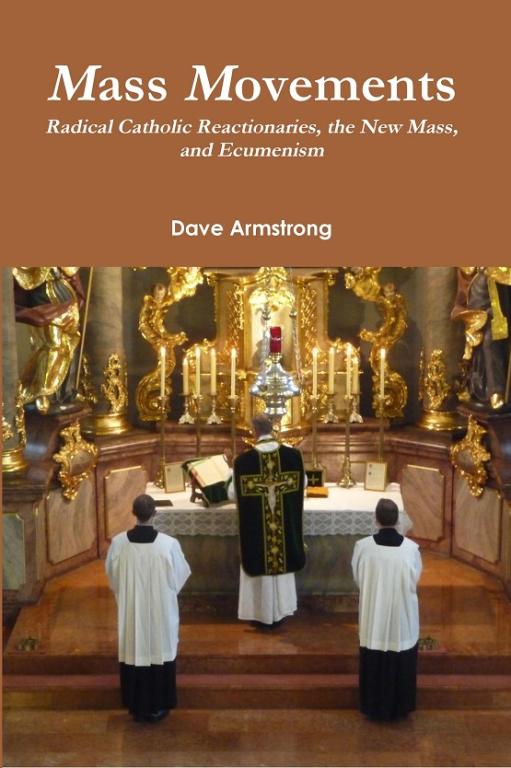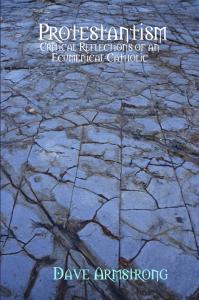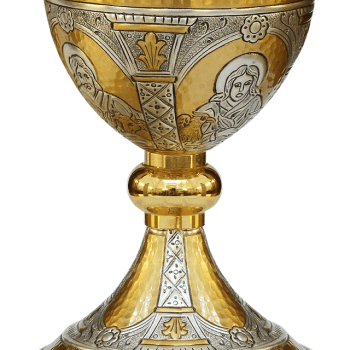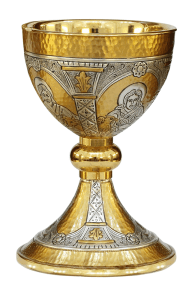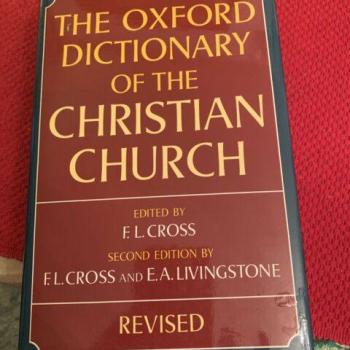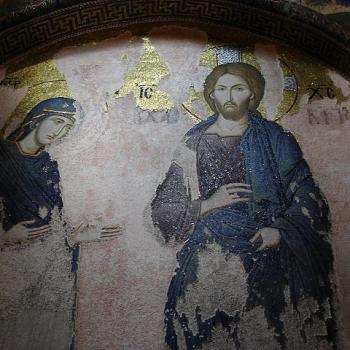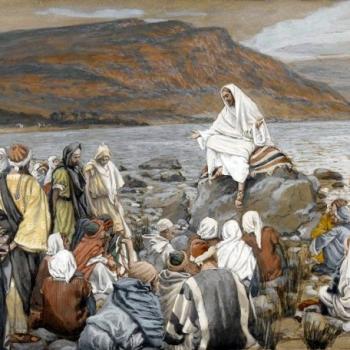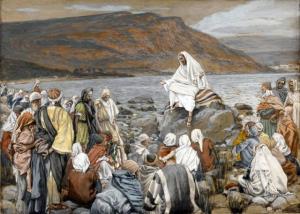Including Extensive Biblical Analyses of Exceptionally “Righteous” and “Holy” People, and Merit
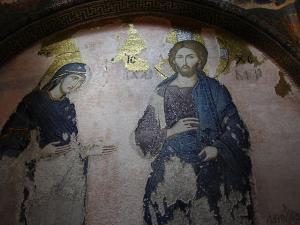
Lucas Banzoli is a very active Brazilian anti-Catholic polemicist, who holds to basically a Seventh-Day Adventist theology, whereby there is no such thing as a soul that consciously exists outside of a body, and no hell (soul sleep and annihilationism). This leads him to a Christology which is deficient and heterodox in terms of Christ’s human nature after His death. He has a Master’s degree in theology, a degree and postgraduate work in history, a license in letters, and is a history teacher, author of 25 books, as well as blogmaster (but now inactive) for six blogs. He’s active on YouTube.
This is my 22nd refutation of articles written by Lucas Banzoli. As of yet, I haven’t received a single word in reply to any of them (or if Banzoli has replied to anything, anywhere, he certainly hasn’t informed me of it). Readers may decide for themselves why that is the case. His words will be in blue. I use RSV for the Bible passages unless otherwise indicated.
*****
I’m replying to Lucas’ article, “Maria era uma mulher qualquer?” [Was Mary just any woman?] (3-24-17).
[In another “closely related” article] I unmask the Catholic trick that consists of saying that we “hate Mary” just because we don’t believe in the ridiculous and late Marian dogmas invented by Rome.
I chose my title very carefully. I didn’t (and don’t) claim that Protestants “hate” Mary. Nor do I think that most Catholics believe this (though there certainly are some). I contend that they simply don’t understand the importance and crucial nature of Mariology in the overall framework of Christianity. They haven’t been properly taught. Their theological formation was deficient and insufficient. They have become spiritually impoverished or stunted. This wasn’t true — I’m delighted to report — of the original Protestants. It crept in later, as a result of the corrosion of early manifestations of cynical, skeptical theological liberalism.
Accordingly, I chose the word “denigration” to describe Lucas’ stated opinions. He regards the Blessed Virgin Mary as far “lower” in significance and holiness than she actually is. Although he does (happily) concede several points about her blessedness (even singular blessedness), due to her being the mother of Jesus, He doesn’t present her as the Bible does (sinless). And he takes a few classic supposed “anti-Mary” texts and distorts them in order to try to make this failed, miserable case for Mary’s “ordinariness.” I also describe his pathetic effort as “mindless” because it’s literally groundless and unbiblical, as I will show. It has no substance. It’s simply spiritual ignorance.
So: “hatred”? No. I don’t claim that Protestants (generalizing) hate Mary. But rank ignorance of both the Bible and traditional Catholic and Orthodox and early Protestant Mariology? Yes! Absolutely . . .
In the present article I will dismantle another papist charge, that we assert that Mary was “an ordinary woman.”
That is, in fact (much as he denies it) the conclusion that Lucas argues for in this article.
Usually this accusation is the fruit of a straw man created in debates where the Protestant debater didn’t say anything about it. For example, this occurs when an evangelical claims that Mary was a human being and not a goddess, and then the enraged, teeth-baring papist hurls abuse at the believer and accuses him of saying that Mary was “an ordinary woman.”
I can see why a “papist” might very well react that way, since the premise contains a lie: that is, that we supposedly regard or classify Mary as a “goddess.” That’s a notion smuggled in from Greek or Roman pagan religion and mythology. Catholics regard Mary as God’s greatest creature and the holiest created human being, because God chose her to bear the incarnate God: Jesus. Protestants like Lucas simply collapse that into the category of “goddess” because they seem constitutionally unable to grasp the fact that different folks have different levels of holiness; therefore, that there can be a “holiest” among those who are exceptionally holy, and can do that without becoming God, and remaining quite human.
That’s high and exalted indeed, and worthy of honor and reverence (not worship or adoration), but it has nothing to do with being an alleged “goddess.” If in fact Catholics believed that Mary was a “goddess” then surely the term would appear in official [magisterial] Catholic documents somewhere. But of course it does not. If Lucas or any Protestant denies that, let them produce the documented evidence. “Put up or shut up!” Best wishes in that endeavor!
Mary was simply exceptionally holy: so much so that she was holier than any other created human being: and that as a result of God performing a special miracle of removing original sin from her at conception. Most Protestants don’t or can’t or won’t accept that, since they have this mistaken and unscriptural idea that all human beings are more or less the same, and exhibit no differences of degree of holiness and righteousness (which ties directly into their denial of merit). The Bible doesn’t teach that, but Protestant extra-biblical tradition unfortunately does.
But after all: was Mary just any woman? My answer is: Yes. And not. Let me explain. The crucial point behind this accusation is not in Mary, but in “any”. The “any” is the emphasis of the sentence. So, it is first necessary to define what “any” is, what the debater understands by the term. When a Protestant claims that Mary was an “any woman”, he is not saying that Mary was an ordinary, despicable or insignificant woman, as the Catholic debater purposely distorts the term. He is merely maintaining that Mary was not “more” a woman than other women, that is, that she was only a woman and not a goddess or demigoddess, as Catholics think.
That is, the “any” is not in a pejorative sense, it is not diminishing the person of Mary; it is simply emphasizing that she was as human as any other woman. In the Bible, all women were created equally in the image and likeness of God as His creatures.
Since we have no disagreement with this whatsoever (as far as it goes), it’s a non sequitur (irrelevant). Lucas again constructs a straw man and knocks it down: impressing no one but those as profoundly ignorant about these matters as he is.
All human beings are of equal value before God, and if anyone denies this, he will descend to Nazi thinking, that held that there were superior and inferior types of people. God loves all men and women equally, regardless of race, nation, age, or role in life.
Of course He does. The marvel here is that Lucas thinks Catholics would deny this. More rank ignorance on display . . .
If a viewpoint strays from this understanding, it’s not Christianity: it’s idolatry, when one human being is placed above all others, sometimes even sharing the focus with God.
Again, the Bible refers to holy people: ones who are holier than others. Therefore, in that scenario there can be one person who is in fact, holier than all other created people: up to and including sinlessness. This person we Catholics believe to be the Blessed Virgin Mary. Let’s take a step back and first establish the premise that Lucas appears to deny: that there are differences in holiness among human beings.
James 5:16-18 . . . The prayer of a righteous man has great power in its effects. [17] Eli’jah was a man of like nature with ourselves and he prayed fervently that it might not rain, and for three years and six months it did not rain on the earth. [18] Then he prayed again and the heaven gave rain, and the earth brought forth its fruit.
It’s all right there. The prophet Elijah was just a person like all the rest of us, with a “like nature” (just as was true of Mary also), but he was exceptionally righteous, and here we learn that the prayer of such a person has more powerful effects than that of a less holy person. See a similar verse:
1 Peter 3:12 For the eyes of the Lord are upon the righteous, and his ears are open to their prayer.
The Bible teaches that grace is given in different degrees to different people. See my paper, Degrees of Grace / Quantifiable Differences in Grace [5-4-17].
The description “more righteous” appears four times in the Old Testament. “Righteous man” appears 22 times in the Old Testament, and “good man” seven times. Job is described as “blameless and upright, one who feared God, and turned away from evil” (Job 1:1; cf. 1:8; 2:3). The phrase “blameless man” also appears in 2 Samuel 22:26; Psalms 18:25 and 37:37. “Holy man” occurs in 2 Kings 4:9, in reference to the prophet Elisha.
The notion of merit is entirely biblical:
Catholic Merit vs. Distorted Caricatures (James McCarthy) [1997]
Merit and Cooperating with God for Salvation [7-8-07]
Catholic Bible Verses on Sanctification and Merit [12-20-07]
Our Merit is Based on Our Response to God’s Grace [2009]
Merit & Human Cooperation with God (vs. Calvin #35) [10-19-09]
Jesus Associates Works, Merit, & Heroic Sacrifice w Salvation [11-10-18]
Protestants agree with us that there are differential rewards in heaven. Why would that be? Well, it’s (I think rather obviously) because of different attainments of merit and righteousness in this life: all by God’s grace, I hasten to add (like all good things); but we have to cooperate with our free will and in doing so, we gain merit and more rewards in heaven.
Hebrews 11 is a chapter devoted to “the heroes of faith.” Are we to believe that none of the people mentioned were worthy of such scriptural honor; that they were no higher in righteousness than Joe Blow Protestant sitting in a Bible study on Wednesday night?
There is absolutely such a thing in the New Testament as a “righteous / holy person”: usually meaning in context that he or she is relatively more righteous or holy than other persons:
Matthew 10:41 . . . he who receives a righteous man because he is a righteous man shall receive a righteous man’s reward.
Matthew 13:17 Truly, I say to you, many prophets and righteous men longed to see what you see, and did not see it, and to hear what you hear, and did not hear it.
Matthew 21:32 For John came to you in the way of righteousness, and you did not believe him, . . .
Matthew 23:35 that upon you may come all the righteous blood shed on earth, from the blood of innocent Abel to the blood of Zechari’ah the son of Barachi’ah, . . .
Mark 6:20 for Herod feared John, knowing that he was a righteous and holy man, . . .
Luke 1:5-6 In the days of Herod, king of Judea, there was a priest named Zechari’ah, of the division of Abi’jah; and he had a wife of the daughters of Aaron, and her name was Elizabeth. [6] And they were both righteous before God, walking in all the commandments and ordinances of the Lord blameless.
Luke 1:70 as he spoke by the mouth of his holy prophets from of old,
Luke 1:74-75 to grant us that we, being delivered from the hand of our enemies, might serve him without fear, [75] in holiness and righteousness before him all the days of our life.
Luke 2:25 Now there was a man in Jerusalem, whose name was Simeon, and this man was righteous and devout,
Luke 23:50 Now there was a man named Joseph from the Jewish town of Arimathe’a. He was a member of the council, a good and righteous man,
Romans 6:13 Do not yield your members to sin as instruments of wickedness, but yield yourselves to God as men who have been brought from death to life, and your members to God as instruments of righteousness.
Romans 6:19 . . . yield your members to righteousness for sanctification.
2 Corinthians 9:10 He who supplies seed to the sower and bread for food will supply and multiply your resources and increase the harvest of your righteousness.
Ephesians 1:4 even as he chose us in him before the foundation of the world, that we should be holy and blameless before him.
Ephesians 3:5 . . . his holy apostles and prophets . . .
Ephesians 4:24 and put on the new nature, created after the likeness of God in true righteousness and holiness.
Philippians 1:11 filled with the fruits of righteousness . . .
Colossians 3:12 Put on then, as God’s chosen ones, holy and beloved, compassion, kindness, lowliness, meekness, and patience,
1 Thessalonians 2:10 You are witnesses, and God also, how holy and righteous and blameless was our behavior to you believers;
1 Timothy 6:11 But as for you, man of God, shun all this; aim at righteousness, godliness, faith, love, steadfastness, gentleness. (cf. 2 Tim 2:22)
Titus 1:8 but hospitable, a lover of goodness, master of himself, upright, holy, and self-controlled;
1 Peter 1:15-16 but as he who called you is holy, be holy yourselves in all your conduct; [16] since it is written, “You shall be holy, for I am holy.”
1 Peter 3:5 . . . the holy women who hoped in God . . .
2 Peter 2:5 . . . Noah, a herald of righteousness . . .
2 Peter 2:7-8 . . . righteous Lot . . . [8] (for by what that righteous man saw and heard as he lived among them, he was vexed in his righteous soul day after day with their lawless deeds),
2 Peter 3:2 . . . the holy prophets . . .
1 John 3:7 . . . He who does right is righteous, as he is righteous.
1 John 3:12 and not be like Cain who was of the evil one and murdered his brother. And why did he murder him? Because his own deeds were evil and his brother’s righteous.
Revelation 22:11 Let the evildoer still do evil, and the filthy still be filthy, and the righteous still do right, and the holy still be holy.
sometimes even sharing the focus with God.
That happens several times in Holy Scripture. It’s nothing unusual or controversial:
Mark 16:20 And they went forth and preached everywhere, while the Lord worked with them . . .
Romans 15:17-18 In Christ Jesus, then, I have reason to be proud of my work for God. [18] For I will not venture to speak of anything except what Christ has wrought through me to win obedience from the Gentiles, by word and deed,
1 Corinthians 3:9 . . . we are God’s fellow workers . . . (KJV: “labourers together with God”)
1 Corinthians 15:10 But by the grace of God I am what I am, and his grace toward me was not in vain. On the contrary, I worked harder than any of them, though it was not I, but the grace of God which is with me.
1 Corinthians 15:58 Therefore, my beloved brethren, be steadfast, immovable, always abounding in the work of the Lord, knowing that in the Lord your labor is not in vain.
2 Corinthians 6:1 Working together with him, then, we entreat you not to accept the grace of God in vain.
2 Corinthians 13:3 . . . Christ is speaking in me . . .
Galatians 2:20 I have been crucified with Christ; it is no longer I who live, but Christ who lives in me; . . .
Philippians 2:13 for God is at work in you, both to will and to work for his good pleasure.
God even shares His glory with human beings, as I have documented.
Once a woman in the crowd said to Jesus: “Blessed is the womb that bore you, and the breasts that you sucked!” (Luke 11:27) What did Jesus answer? If he were Catholic, we would know very well what the answer would be, and he would exalt Mary even more. But his reply was: “Blessed rather are those who hear the word of God and keep it!” (Luke 11:28) Note that Luke, the evangelist, introduces Jesus’ answer with a “But“, to make it clear that he was contradicting what the woman said. And when he quotes Jesus’ answer, he starts with a “Before”, placing anyone who hears the word of God as blessed before Mary.
I’m not sure where Lucas sees “before.”
That woman in the crowd thought Mary was special and more important than all the others for giving birth to Jesus – this is exactly the same Catholic argument! – but Jesus contradicts it and puts anyone who keeps the word of God above it.
Jesus wasn’t denying that His mother was blessed, but instead, affirming it and moving on to make a more general point (which would likely include Mary as well: as the exemplar of a general description of holiness). This is scarcely a case illustrating “Catholicism gone awry.” In fact, it is no problem at all (none, whatsoever), rightly understood. Jesus affirms His mother and her holiness, and goes on to make another point, just as he did in several other similar passages. He was referring to Mary, too, when he was extolling those who “hear the word of God and obey it” (Phillips). The Catholic Encyclopedia (in its article: “The Blessed Virgin Mary”) comments on this passage:
At first sight, it seems that Jesus Himself depreciated the dignity of His Blessed Mother. . . .
In reality, Jesus . . . places the bond that unites the soul with God above the natural bond of parentage which unites the Mother of God with her Divine Son. The latter dignity is not belittled; as men naturally appreciate it more easily, it is employed by Our Lord as a means to make known the real value of holiness. Jesus, therefore, really, praises His mother in a most emphatic way; for she excelled the rest of men in holiness not less than in dignity. . . .
Think for a moment of the implications of the interpretation whereby Jesus would be denying that Mary was blessed. Really? This is not just a question of allegedly “excessive” Catholic Marian veneration, but of clear biblical texts.
This is about a woman who was hailed by the angel Gabriel (what other human being is treated this way by an angel?), twice called “blessed” by Elizabeth (mother of John the Baptist: Lk 1:42, 45), precisely because she was the Mother of God the Son and believed the angel when she was informed of this. Mary herself says in reply: “henceforth all generations will call me blessed” (Lk 1:48). And of course, Catholics do that and almost all Protestants do not. We fulfill the prophecy.
In other words, if Mary was blessed, it was for keeping the Word of God, and therefore being as blessed as any other person who also keeps the Word, and not in a privileged and superior way just because she was his mother. That’s a harsh message, it’s true.
It’s “both/and”; not “either/or” as in the frequent unbiblical “dichotomous” Protestant mentality. Mary kept the Word so well that she was sinless. Who can keep it better than that? But she was privileged, too, by being the mother of God incarnate: an absolutely unique human accomplishment. One either grasps the sublime wonder and marvel of this or they do not. This is what I was referring to earlier, in describing many Protestants as having a “theological formation” that was “deficient and insufficient” and “spiritually impoverished or stunted” and suffering from “spiritual ignorance” and a sad state of being “oblivious to self-evident spiritual reality and manifest biblical teachings.”
Martin Luther didn’t suffer from these shortcomings at all. He “got it”: in a way that Lucas seems literally unable to comprehend:
She became the Mother of God, in which work so many and such great good things are bestowed on her as pass man’s understanding. For on this there follows all honor, all blessedness, and her unique place in the whole of mankind, among which she has no equal, namely, that she had a child by the Father in heaven, and such a Child . . . Hence men have crowded all her glory into a single word, calling her the Mother of God . . . None can say of her nor announce to her greater things, even though he had as many tongues as the earth possesses flowers and blades of grass: the sky, stars; and the sea, grains of sand. It needs to be pondered in the heart what it means to be the Mother of God. (Commentary on the Magnificat, 1521; Luther’s Works, Vol. XXI, 326)
That is the main consideration of Mary’s uniqueness. She was the Mother of God [the Son]. No one else was or is. No one had the unfathomable honor and privilege of not only bearing the Incarnate God for nine months, but living with Him and raising Him for thirty years, when the rest of the world knew Him not (they only had three years to do so). Mary thus had intimate connection with Jesus for ten times more years than anyone else, other than St. Joseph. Is that not amazingly unique as well, and anything but “ordinary”?
When I was a Protestant, I “got this” too. I believed that Mary was the greatest human being ever created. And why? Because she bore Jesus, and was so holy and humble, and appeared to be the first Christian in the new covenant (though I would have denied that she was sinless).
Lucas, in a related article, concedes this point (though it seems almost self-contradictory, given his overall argument):
Mary being the mother of Jesus, the Son of God is more than enough to consider her truly blessed and graced, as the Bible says of her. Although the Bible says that Mary was blessed among women, I affirm without hesitation that she was more blessed than all women as well, because of this unique and singular fact.
Secondly, she was full of grace (and called that by the angel Gabriel); that is, sinless: which is consistent with her Immaculate Conception. I explained how this follows, from Luke 1:28, in many articles:
Luke 1:28 (“Full of Grace”) & Immaculate Conception [2004]
The Bible: Mary Was Without Sin [4-1-09]
Mary’s Immaculate Conception: A Biblical Argument [2010]
Annunciation: Was Mary Already Sublimely Graced? [10-8-11]
Biblical Support for Mary’s Immaculate Conception [National Catholic Register, 10-29-18]
A “Biblical” Immaculate Conception? (vs. James White) [8-27-21]
Lucas agrees in his related article, that Mary was “full of grace”:
The Bible also says that Mary was “graced” or “full of grace” (depending on the controversial translation of kecharitomene), and we agree: [cites Luke 1:28-30] . . .
And while the most likely translation of kecharitomene is “graced” rather than “full of grace”, I believe without a doubt that Mary was “full of grace” as well. And that’s no retreat. I already wrote an article stating this on September 7, 2012 . . .
Interestingly, the translation he used for Luke 1:30 is translated into English by Google: “Do not be afraid, Mary; you have been graced by God!” [Portugese: “Não tenha medo, Maria; você foi agraciada por Deus!”] This is a good rendering, because the Greek word is “grace” [charin / χάριν: Strong’s word #5485]. Many translations use “favor with God” here but “graced by God” is perfectly apt and proper. NASB translates charin as “grace” 122 times (78%) out of 156 appearances. Some non-Catholic English translations of Luke 1:30 are similar:
Amplified Bible, Classic (AMPC) you have found grace (free, spontaneous, absolute favor and loving-kindness) with God.
NEB + REB God has been gracious to you.
Expanded Bible (EXB) God has shown you his grace [ you have found favor/grace with God].
Jubilee Bible 2000 (JUB) thou hast found grace with God.
New Century Version (NCV) God has shown you his grace.
New Matthew Bible (NMB) you have found grace with God.
Wycliffe Bible (WYC) thou hast found grace with God.
Lamsa You have found grace with God.
Thirdly, she was called “blessed” in an extraordinary way, and precisely because she was the mother of Jesus:
Luke 1:41-48 And when Elizabeth heard the greeting of Mary, the babe leaped in her womb; and Elizabeth was filled with the Holy Spirit [42] and she exclaimed with a loud cry, “Blessed are you among women, and blessed is the fruit of your womb! [43] And why is this granted me, that the mother of my Lord should come to me? [44] For behold, when the voice of your greeting came to my ears, the babe in my womb leaped for joy. [45] And blessed is she who believed that there would be a fulfilment of what was spoken to her from the Lord.” [46] And Mary said, “My soul magnifies the Lord, [47] and my spirit rejoices in God my Savior, [48] for he has regarded the low estate of his handmaiden. For behold, henceforth all generations will call me blessed;
That’s biblical teaching. Lucas, in his related article, to his credit, again agrees:
We evangelical Christians have absolutely no problem or hesitation in asserting about Mary what the Bible actually says she was. The Bible says that Mary was blessed among women, and we agree [cites Luke 1:42] . . .
The Bible says that Mary would be called “blessed” through all generations, and we agree, and we consider Mary certainly very blessed: [cites Luke 1:46-49]
That’s all great. I would simply note that if Lucas agrees with Scripture that Mary was “blessed among women” and “certainly very blessed”, then why doesn’t he call her what we call her: “the Blessed Virgin Mary”? Catholics literally do what the Bible predicts: we call her “Blessed”: precisely as the Bible says would happen in “all generations.”
Fourthly, Catholic belief in her Immaculate Conception finds strong analogies to the prophets Isaiah, Jeremiah, and John the Baptist, and to the Apostle Paul:
Isaiah 49:1, 5 . . . The LORD called me from the womb, . . . [5] And now the LORD says, who formed me from the womb to be his servant, to bring Jacob back to him, and that Israel might be gathered to him, for I am honored in the eyes of the LORD, and my God has become my strength –
Jeremiah 1:5 “Before I formed you in the womb I knew you, and before you were born I consecrated you; I appointed you a prophet to the nations.” (KJV: “sanctified thee”)
Luke 1:15 for he will be great before the Lord, and he shall drink no wine nor strong drink, and he will be filled with the Holy Spirit, even from his mother’s womb.
Galatians 1:15 . . . he who had set me apart before I was born, and had called me through his grace,
Fifth, we have the data from Revelation 12, which is about Mary and illustrates a strong heavenly exaltation and veneration of Mary:
Virgin Mary: Woman of Revelation 12? [4-1-09]
Dialogue on the Woman of Revelation 12 (Mary?) [8-16-11]
Blessed Virgin Mary & Revelation 12: Debate with a Protestant [5-28-12]
Defending Mary (Revelation 12 & Her Assumption) [5-28-12]
Vs. James White #12: Mary the Woman of Revelation 12 [11-7-19]
Is Our Lady the Woman of Revelation 12? [National Catholic Register, 11-27-19]
It is an affront to the ears of the most fanatical Catholics, who unduly exalt Mary with exactly the same argument used by the woman in the crowd whom Jesus antagonized. But it’s the truth, whatever the cost: Jesus doesn’t put Mary on a pedestal because she was his mother. The “pedestal” is to guard the Word of God, and in this all those who practice are together.
We venerate Mary for the above reasons: all eminently biblical. Period. It’s the Bible that “put Mary on a pedestal.” Lucas’ real beef is with Holy Scripture. Because of that, we follow that example, since we desire to ground all of our beliefs (or to have them be in harmony with) in the biblical revelation.
Another text where this thought becomes even clearer is in Mark 3:32-35, which says:
“And a crowd was sitting about him; and they said to him, “Your mother and your brothers are outside, asking for you.” [33] And he replied, “Who are my mother and my brothers?” [34] And looking around on those who sat about him, he said, “Here are my mother and my brothers! [35] Whoever does the will of God is my brother, and sister, and mother.””
Here Jesus not only privileges his spiritual family over his natural family – and explicitly includes his mother in this set – but also uses the term “any”, so oppressive to the Tridentines. Yes, what Jesus was saying is that anyone [“whoever”] who does the will of God is your brother, sister and mother. If Jesus says anyone can be like Mary if they do God’s will, then Mary is like anyone who does God’s will. This is simple and basic logic. Spiritually speaking, Mary was an “any” woman, equal to all others who did the will of God.
This is not belittling Mary, but elevating all others in equal dignity.
I dealt with this groundless objection, too, at length: “Who is My Mother?”: Beginning of “Familial Church” [8-26-19]. Here are some highlights:
James Spencer Northcote comments . . .:
. . . nor can it be necessary to point out to anyone who is familiar with the Gospels, how common a thing it was with our Blessed Lord to direct His answers not so much to the questions that had been put forward, as to the inward thoughts and motives of those who put them; how sometimes He set aside the question altogether as though he had not heard it, yet proceeded to make it the occasion of imparting some general lesson which it suggested. This is precisely what He does now. . . .
Jesus took this opportunity to show that He regarded all of His followers (in what would become the Christian Church) as family. Similarly, He told His disciples, “I have called you friends” (Jn 15:15).It doesn’t follow that this is “a rebuff of this kin” (i.e., his immediate family). He simply moved from literal talk of families to a larger conception and vision of families as those who do “the will of God.” Thus, Jesus habitually used “brethren” to describe those who were not His immediate family: [I cite six examples] . . .
It’s not a rebuff of His mother and father and half-brothers and/or cousins . . . it’s simply the beginning of the Body of Christ, and the Christian Church being regarded as one large, extended family.
None of this has any bearing on the spiritual status of Mary. It’s simply Jesus “expanding the circle” of Christian believers, so to speak. Protestants like Lucas see this as an alleged denigration of Mary because they are already predisposed to do so before they read the text. Such a view is not inherently in the text.
In the mind of the Catholic apologist, Mary can only be honored if she demeans everyone else.
No informed apologist ever said any such thing. It’s absurd. But there can (indeed must be) be a human being who is holier than anyone else, just as there are people who can play basketball better than anyone else, or run faster, or understand mathematics better than anyone, etc. So there is the holiest person. Catholics say — based on the Bible and unbroken Sacred Tradition — that this person is the Blessed Virgin Mary.
In the Bible, Mary is in the same group as others who seek God, not because she is despicable, but because others are just as important as she is spiritually before God.
That’s simply not true, as I have just demonstrated in fine different ways in the Bible (and by dismantling his alleged biblical disproofs). It’s what Protestants like Lucas wish or wrongly imagine to be true, despite the Bible.
While the Catholic demeans everyone to elevate Mary in an idolatrous way,
We do no such thing. We simply say she was sinless and God’s greatest creature (which someone logically has to be; for example, maybe a Protestant would say this person was St. Paul). And we don’t make an idol of her because we don’t worship or adore her as a goddess. We venerate and honor her, which is a perfectly biblical thing:
The Imitation of St. Paul & the Veneration of Saints [2004]
Bible on Veneration of Saints & Angels: John Calvin’s Antipathy to Veneration of Saints and Angels vs. Explicit Biblical Evidences of Same [10-1-12]
Biblical Evidence for Veneration of Saints [2013]
Veneration of Saints: God “In” and “Through” St. Paul [5-7-13; slightly expanded on 5-17-21]
Veneration of & Bowing Before an Angel (Joshua 5:13-15) [9-7-13]
Venerating & Bowing Before Angels & Men: Biblical? [11-10-14]
New (?) Analogical Biblical Argument for Veneration of the Saints and Angels from the Prohibition of Blasphemy of the Same [8-8-15]
Veneration of Human Beings: Seven Biblical Examples (Apostles Paul and Silas, Kings David and Saul, Prophets Daniel and Samuel, Patriarch Joseph) [3-4-19]
Angel Gabriel’s “Hail” (Lk 1:28): Veneration of Mary? [3-8-19]
Imitating Paul & Saints: Biblical Argument for Veneration [10-29-21]
Elizabeth’s Veneration of God-Blessed Mary [12-2-21]
the Bible elevates everyone, without exception, who does God’s will, in God’s eyes.
Yes it does. That is the basis of merit: human beings accept God’s grace and act upon it,: thereby receiving merit.
It doesn’t exalt one to debase the others; it exalts others by making everyone equal under the mercy and love of God.
God loves everyone equally, and desires that all be saved (they are not because so many reject God’s free offer of grace), but they are not equally holy or meritorious, and do not even receive equal measures of grace, as massively shown above.
. . . all this just to solely extol Mary to the detriment of all others. If that isn’t misogyny and idolatry of the highest degree, I don’t know what is.
What an odd claim, seeing that Catholics have many female saints whom we venerate, and have proclaimed four Doctors of the Church: St. Teresa of Avila (1515-1582), St. Catherine of Siena (1347-1380), St. Therese of Lisieux (1873-1897), and St. Hildegard of Bingen (1098-1179). Doctors of the Church are “saints whose writing or preaching is outstanding for guiding the faithful in all periods of the Church’s history” (Fr. John A. Hardon, SJ, Modern Catholic Dictionary).
The rest of this article that I have not directly responded to is either reiteration, or just plain stupid and silly and more straw men: ideas and opinions that never arose in any pious and educated Catholic mind. I didn’t have the patience to deal with all of it; but the heart and essence of Lucas’ argument has been dealt with and thoroughly refuted, and this article is over 5,000 words as it is.
Please keep praying for my patience, dear Catholic readers. I’ll need it as I continue to wallow through the outrageous and noxious, odious muck of Lucas’ anti-Catholic articles. The most insufferable of them all is when he battles against what he falsely imagines to be Catholic Mariology and what he wrongly believes about the Blessed Virgin Mary herself.
But someone has to refute this blasphemous slop, so here I am — only by God’s grace — engaging in that task.
***
Practical Matters: Perhaps some of my 4,000+ free online articles (the most comprehensive “one-stop” Catholic apologetics site) or fifty books have helped you (by God’s grace) to decide to become Catholic or to return to the Church, or better understand some doctrines and why we believe them.
Or you may believe my work is worthy to support for the purpose of apologetics and evangelism in general. If so, please seriously consider a much-needed financial contribution. I’m always in need of more funds: especially monthly support. “The laborer is worthy of his wages” (1 Tim 5:18, NKJV). 1 December 2021 was my 20th anniversary as a full-time Catholic apologist, and February 2022 marked the 25th anniversary of my blog.
PayPal donations are the easiest: just send to my email address: [email protected]. You’ll see the term “Catholic Used Book Service”, which is my old side-business. To learn about the different methods of contributing, including 100% tax deduction, etc., see my page: About Catholic Apologist Dave Armstrong / Donation Information. Thanks a million from the bottom of my heart!
***
Photo credit: Istanbul: Chora Church Museum (Kariye Cami). Nartex. A mosaic showing the Virgin Mary beside Jesus. Photograph by Giovanni Dall’Orto, May 29, 2006. Released into public domain by the photographer [Wikimedia Commons]
***
Summary: Brazilian Protestant apologist Lucas Banzoli engages in mindless denigration of an imagined “Mary” by not comprehending what it means to be the Mother of Jesus.
